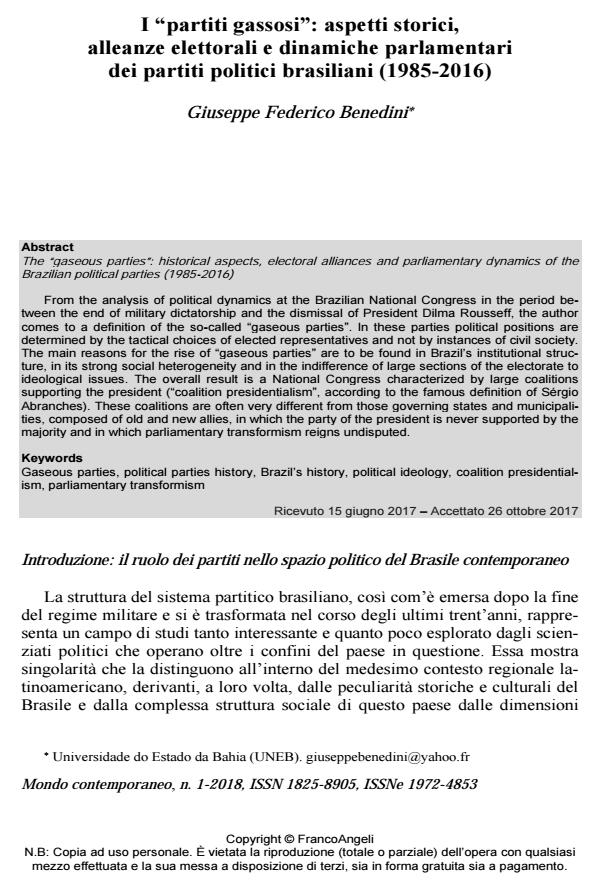The "gaseous parties": historical aspects, electoral alliances and parliamentary dynamics of the Brazilian political parties (1985-2016)
Journal title MONDO CONTEMPORANEO
Author/s Giuseppe Federico Benedini
Publishing Year 2018 Issue 2018/1
Language Italian Pages 31 P. 139-169 File size 352 KB
DOI 10.3280/MON2018-001006
DOI is like a bar code for intellectual property: to have more infomation
click here
Below, you can see the article first page
If you want to buy this article in PDF format, you can do it, following the instructions to buy download credits

FrancoAngeli is member of Publishers International Linking Association, Inc (PILA), a not-for-profit association which run the CrossRef service enabling links to and from online scholarly content.
From the analysis of political dynamics at the Brazilian National Congress in the period between the end of military dictatorship and the dismissal of President Dilma Rousseff, the author comes to a definition of the so-called "gaseous parties". In these parties political positions are determined by the tactical choices of elected representatives and not by instances of civil society. The main reasons for the rise of "gaseous parties" are to be found in Brazil’s institutional structure, in its strong social heterogeneity and in the indifference of large sections of the electorate to ideological issues. The overall result is a National Congress characterized by large coalitions supporting the president ("coalition presidentialism", according to the famous definition of Sérgio Abranches). These coalitions are often very different from those governing states and municipalities, composed of old and new allies, in which the party of the president is never supported by the majority and in which parliamentary transformism reigns undisputed.
Keywords: Gaseous parties, political parties history, Brazil’s history, political ideology, coalition presidentialism, parliamentary transformism
Giuseppe Federico Benedini, I "partiti gassosi": aspetti storici, alleanze elettorali e dinamiche parlamentari dei partiti politici brasiliani (1985-2016) in "MONDO CONTEMPORANEO" 1/2018, pp 139-169, DOI: 10.3280/MON2018-001006